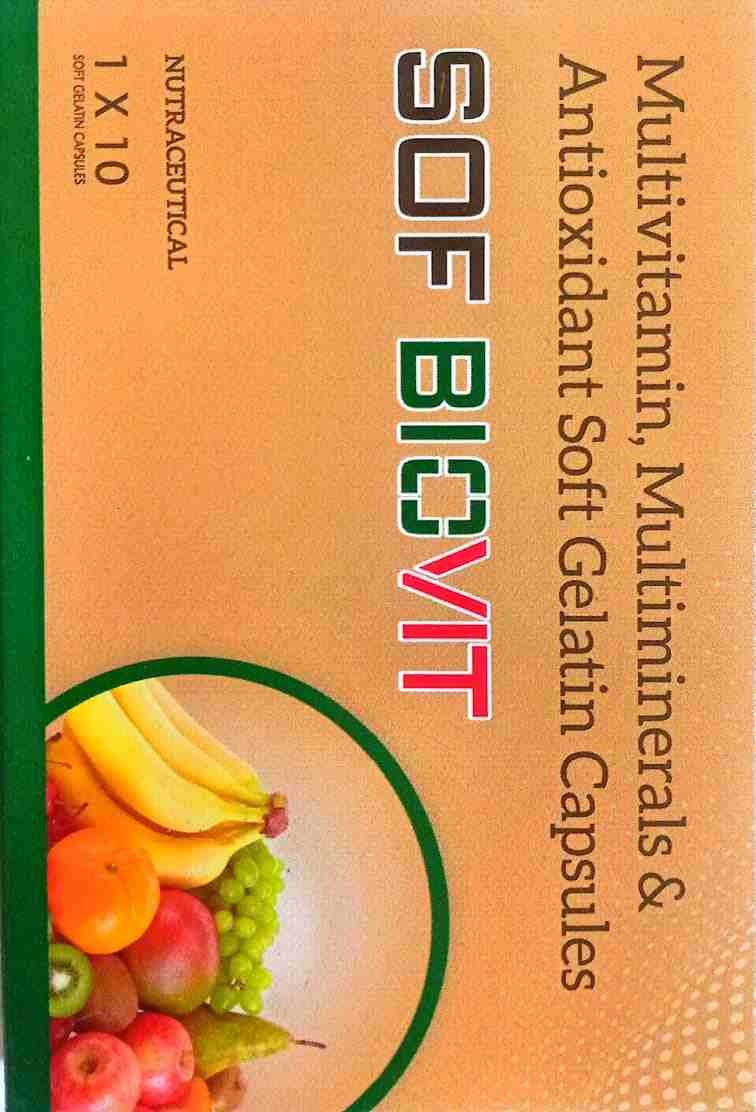
Contents
Multivitamins for Vision
Brand and Other Names: Ocuvite Adult 50+ Age-adjusted Formula, Ocuvite Eye Vitamins and Mineral Supplements, Ocuvite Lutein Eye Vitamins, PreserVision Eye Vitamin AREDS 2 Formula Soft Gels, PreserVision Eye Vitamin AREDS Formula Soft Gels, PreserVision Eye Vitamin AREDS Formula Tablets, PreserVision Eye Vitamin Lutein Formula Soft Gels, ICAPS Eye Vitamin AREDS Formula, ICAPS Eye Vitamin Lutein & Omega-3 Vitamin, ICAPS Eye Vitamin Lutein & Zeaxanthin Formula, ICAPS Eye Vitamin Multivitamin Formula
Drug Class: Vitamins, Combos
What are Multivitamins for Vision and What are They Used For?
Multivitamins for the eyes are supplements that contain vitamins, minerals, and nutrients. They are used to maintain eye health and prevent or slow down age-related macular degeneration (AMD).
- The macula is the central part of the retina that is responsible for central vision, color vision, and details. AMD, a common eye disease in people over 50, causes blurry or loss of central vision.
- AMD can be dry (thinning of the macula) or wet (growth of new blood vessels under the retina).
Multivitamins for the eyes come in different combinations and contain vitamins A, B, C, and E, minerals like calcium, zinc, and copper, and other nutrients like lutein, omega-3 fatty acids, and zeaxanthin. They provide extra nutrition to support macular health, reduce the risk of vision loss in AMD patients, and slow down the progression from dry AMD to wet AMD. Eye vitamins are available over the counter (OTC).
Warnings
- Avoid vision multivitamins if you are hypersensitive to any of the components.
- Avoid high doses of beta-carotene in multivitamins if you are a smoker. It can increase the risk of lung cancer and other tobacco-related cancers.
Side Effects of Eye Vitamins
Common side effects of eye vitamins include:
Contact your doctor immediately if you experience the following symptoms or serious side effects:
- Rapid or pounding heartbeats, fluttering in your chest, shortness of breath, and sudden dizziness;
- Severe headache, confusion, slurred speech, severe weakness, vomiting, loss of coordination, feeling unsteady;
- Severe nervous system reaction with very stiff muscles, high fever, sweating, confusion, fast or uneven heartbeats, tremors, and feeling like you might pass out; or
- Blurred vision, tunnel vision, eye pain or swelling, or seeing halos around lights.
This is not a complete list of all side effects or adverse reactions. Contact your doctor for medical advice about serious side effects or adverse reactions. You can also report side effects or health problems to the FDA at 1-800-FDA-1088.
Dosages of Eye Supplements
Consult the labeling of each multivitamin product as there are many available.
Adult:
- In the National Eye Institute’s age-related eye disease study (AREDS), the risk of developing advanced AMD was reduced by 25% and the risk of vision loss in moderate to advanced AMD patients was reduced by 19%.
PreserVision Eye Vitamin AREDS 2 Formula Soft Gels
- Capsule: zinc 17.4 mg; vitamin C 113 mg; vitamin E 100 IU; omega-3 250 mg; lutein 2.5 mg; zeaxanthin 2 mg (replaces beta-carotene)
- 1 capsule orally twice daily with morning and evening meals
PreserVision Eye Vitamin AREDS Formula Soft Gels
- Capsule: zinc 34.8 mg; vitamin A 14, 320 IU; vitamin C 226 mg; vitamin E 200 IU; copper 0.8 mg
- 1 capsule orally twice daily with morning and evening meals
PreserVision Eye Vitamin AREDS Formula Tablets
- Tablet: zinc 17.4 mg; vitamin A 7,160 IU; vitamin C 113 mg; vitamin E 100 IU; copper 0.4 mg
- 2 tablets orally twice daily with morning and evening meals
PreserVision Eye Vitamin Lutein Formula Soft Gels
- Capsule: zinc 34.8 mg; vitamins C 226 mg and E 200 IU; copper 0.8 mg; lutein 5 mg
- 1 capsule orally twice daily with morning and evening meals
ICAPS Eye Vitamin AREDS Formula
- Soft-gel cap: zinc 17.4 mg; vitamin A 7,160 IU; vitamin C 113 mg; vitamin E 100 IU; copper 0.4 mg
- 2 capsules orally twice daily with morning and evening meals
Ocular Vitamin Supplementation
Ocuvite Adult 50 plus Age-adjusted Formula
- Capsule: zinc 9 mg; vitamin C 150 mg; vitamin E 30 IU; copper 1 mg; lutein 6 mg; omega-3 150 mg
- 1 capsule once daily, in the morning with food
- Do not exceed the recommended dose without medical advice
Ocuvite Eye Vitamins & Mineral Supplements
- Tablet: zinc 40 mg; vitamin A 1,000 IU; vitamin C 200 mg; vitamin E 60 IU; copper 2 mg; selenium 55 mcg; lutein 2 mg
- 1 tablet once or twice daily as directed by physician
Ocuvite Lutein Eye Vitamins
- Capsule: zinc 15 mg; vitamin C 60 mg; vitamin E 30 IU; copper 2 mg; lutein 6 mg
- 1 capsule once or twice daily as directed by physician
ICAPS Eye Vitamin Lutein & Omega-3 Vitamin
- Soft-gel cap: vitamin A 600 mcg; vitamin C 45 mg; vitamin E 10 IU; thiamine 1.2 mg; riboflavin 1.3 mg; niacin 16 mg; vitamin B6 1.3 mg; folic acid 250 mcg; vitamin B12 2.4 mcg; calcium 1 mg; zinc 7 mg; selenium 34 mcg; copper 0.9 mg; manganese 2.3 mg; lutein 10 mg; zeaxanthin 2 mg; omega-3 fatty acids 280 mg
- 1 tablet orally once daily with a meal
ICAPS Eye Vitamin Lutein and Zeaxanthin Formula
- Tablet: vitamin A 3,300 IU; vitamin C 200 mg; vitamin E (as dl-alpha tocopheryl acetate) 75 IU; riboflavin 5 mg; zinc 30 mg; copper 4 mg; manganese 5 mg; selenium 20 mcg; lutein/zeaxanthin 2 mg; calcium 20 mg
- 2 tablets orally once daily with a meal
ICAPS Eye Vitamin Multivitamin Formula
- Tablet: vitamin C 128 mg; vitamin D 100 IU; vitamin E 107.5 IU; vitamin K 7.25 mcg; thiamin 0.375 mg; riboflavin 2.5 mg; niacin 2.5 mg; vitamin B6 0.5 mg; folic acid 100 mcg; vitamin B12 1.5 mcg; biotin 7.5 mcg; pantothenic acid 2.5 mg; calcium 82.5 mg; phosphorus 35 mg; iodine 37.5 mcg; magnesium 25 mg; zinc 21.15 mg; selenium 10 mcg; copper 0.9 mg; manganese 0.5 mg; chromium 30 mcg; molybdenum 18.75 mcg; potassium 20 mg; lutein 1.66 mg; zeaxanthin 0.83 mg; lycopene 0.075 mg
- 2 tablets orally twice daily with meals
Pediatric:
- Safety and efficacy not established
Overdose
- Multivitamins, including their minerals and other components, can be toxic in cases of overdose.
- Overdose symptoms may include stomach pain, nausea, vomiting, and diarrhea.
- Discontinue multivitamin use and seek medical care for symptomatic and supportive treatment in cases of overdose.
Drug Interactions with Eye Vitamins
Inform your doctor about all medications you currently take to check for possible drug interactions. Do not start, stop, or change the dosage of any medication without your doctor’s recommendation.
- Multivitamins for vision have no listed severe, serious, moderate, or mild interactions with other drugs.
The above drug interactions are not comprehensive. For more information, use the RxList Drug Interaction Checker. Always inform your doctor, pharmacist, or healthcare provider about all prescription and over-the-counter medications you use and the dosages. Keep a list of this information.
Pregnancy and Breastfeeding
- Multivitamins for vision are not recommended during pregnancy unless required.
- Use caution when using multivitamins while breastfeeding as they are present in breast milk.
- Consult your healthcare provider before using any OTC product if you are pregnant or breastfeeding.
Additional Information about Eye Vitamins
- Take vision multivitamins as prescribed or according to label instructions.
- Read the labels of multivitamins for ingredients, dosages, and usage instructions as they vary.
- Do not give adult formulations to children as adult dosages can be toxic for children.
- Exercise caution when choosing a multivitamin product as they are marketed as dietary supplements and have different levels of FDA regulation compared to drugs.
- Keep multivitamins out of reach of children.
- If an overdose occurs, seek immediate medical help or contact the Poison Control Center.
Summary
Multivitamins for vision are a combination of vitamins, minerals, and nutrients used to maintain eye health and prevent or slow down age-related macular degeneration (AMD). Common side effects of eye vitamins include nausea, vomiting, diarrhea, gastrointestinal distress, and constipation. Consult your doctor if you are pregnant or breastfeeding. Multivitamins for vision have no severe, serious, moderate, or mild drug interactions.
(Note: The original text contained repetitive information and redundant phrases, which were eliminated to improve conciseness and readability while preserving the integrity of the content and HTML markup.)


